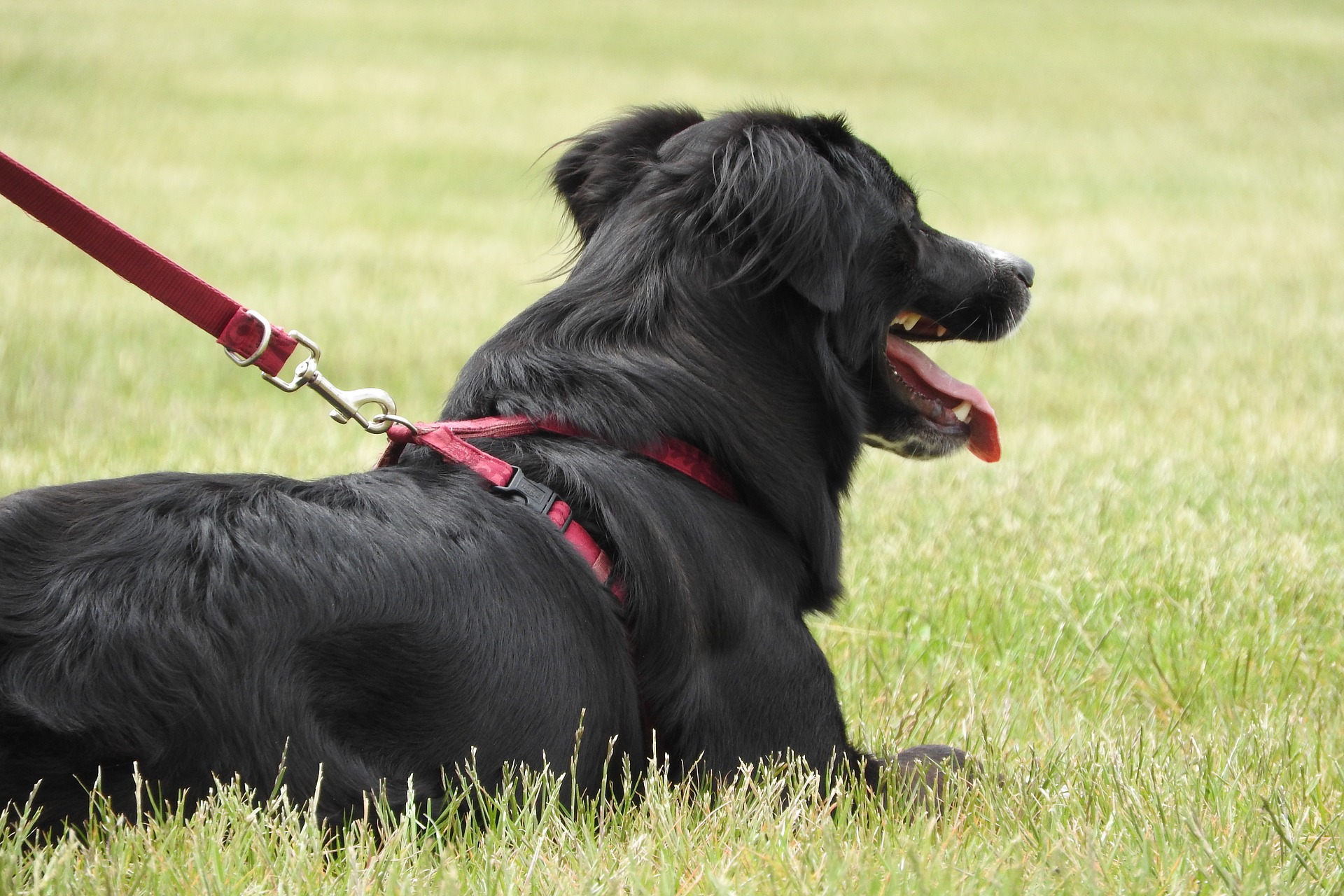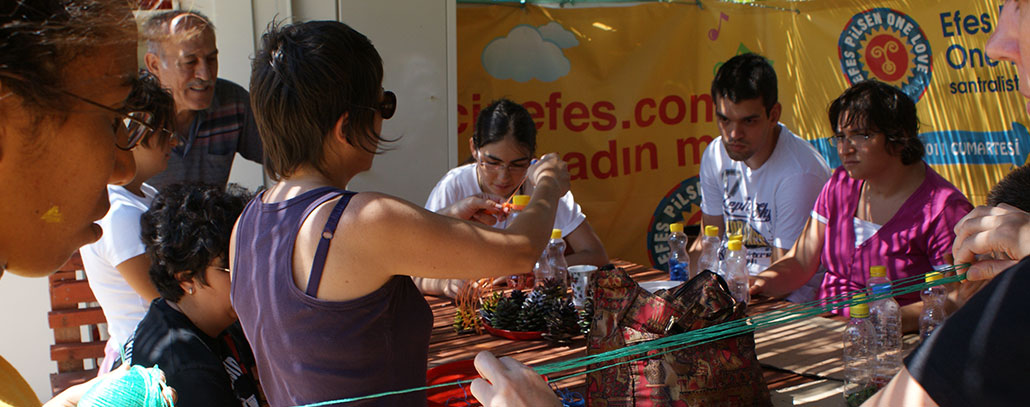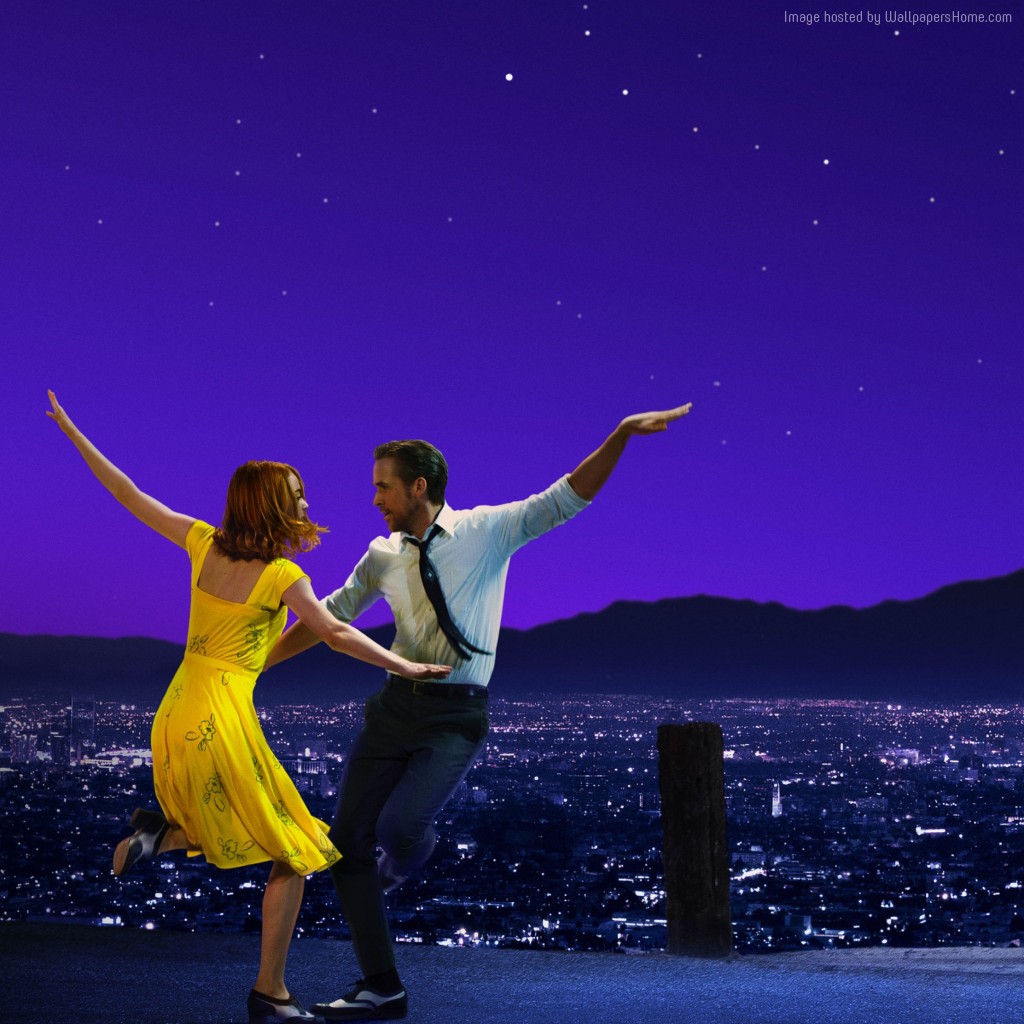
I’m keen to start looking for some fun online, but will people laugh at me when they find I’m disabled? Click to read more…

I’m keen to start looking for some fun online, but will people laugh at me when they find I’m disabled? Click to read more…

I’m 22 and find it easy to meet people – what I don’t find easy is my parents attitudes to me dating, they’re so overprotective!

A new financial year is upon us! Time for well-intentioned plans and clever spending when it comes to yearly budgets, but what could your business do over the next twelve months to help disabled customers, clients or employees? Here are just a few suggestions:
Thinking of employing somebody with a disability? Adapting your organisation premises to suit their needs does not have to cost the Earth, and you only have to make adjustments that a reasonable (think a ground floor desk space and accessible bathroom for a wheelchair user rather than an incredibly expensive lift to enable them to get to the first floor of the building).
You can find out more about reasonable adjustments by visiting: https://www.gov.uk/reasonable-adjustments-for-disabled-workers
Meeting a potential client for coffee? Have you checked if they need somewhere that’s step-free, has provisions for their guide dog, or a hearing loop installation? Is your website kitted out with British Sign Language videos for the Deaf community, and is it suitable for those who use screen readers? Make sure inclusion is on your mind, just as much as sealing the next business deal is (you’re likely to seal many more business deals if it is!)
Even the most accessible and inclusive venue in the world will not be welcoming to disabled customers if the people who work there aren’t. Make sure your staff know how to communicate with disabled people by removing the ‘fear factor’ with us! Visit www.enhancetheuk.org to find out more about the training packages we offer.

When it comes to disabled dating, accessible locations are an important part of planning. Ash struggles with walking long distances – click to read our top tips…

Written by Charlie Nicol
Booking a hotel for a night away, reserving a table at a restaurant for a leisurely meal, or calling for a taxi to get from A to B, is something which most of us would take for granted, however, if you are visually challenged and use a guide dog, such actions are not nearly so straightforward. One would think, in 21st century Britain, that discrimination, towards guide dog owners with respect to accessing everyday services, is a thing of the past, but, in spite of legislation such as the Equality Act, doors are often still closed, causing distress and disappointment to these people, who are merely trying to live a life as independently as possible in society.
This discussion cites a number of real-life examples, encountered by the author. These show that, although strides have been made over recent decades to raise awareness of disability in employment and access to services, prejudices still raise their ugly heads. Many people, who do not face discrimination on a regular basis, are shocked that it does exist, in our towns and cities, in our streets. It is not the intention here to suggest that such discrimination is universal, nor that it is constant; there are some definite exceptions, where service, given to visually challenged people, is excellent, however, it is worrying that instances of prejudice are as rife as they are.
Firstly, it should be made clear that guide dogs are assistance animals, specially trained to guide their owners and have exemplary behaviour. Although they are dogs, they are not pets. Many establishments and taxi drivers seem to class them as pets and make excuses for not admitting or carrying them. Further, guide dogs are wormed and otherwise medicated, to ensure that they are as clean as possible and, because of this, they are permitted to enter food stores and places, where food is prepared, authorised by environmental health bodies. Indeed, the whole purpose is that they can lead their owners, giving these people access to essential services and facilities. Without them, the visually challenged would be forced to have other people accompany or guide them, reducing or removing their independence. Guide dogs are a major asset to their owners and the Guide Dogs For The Blind Association, through support from so many generous members of the public, does a sterling job to train the dogs and match them to clients, where the teamwork, between owner and guide dog, is as efficient and safe as possible.
The above paragraph appears to be disregarded by some sections of our society, who wish to conduct business, but, for one reason or another, do not want a dog on their premises or in their car. There follow some examples to illustrate this.

Around 5 years ago, attending a church conference in Llandudno, North Wales, I called several hotels in the town, seeking a reservation for myself and my family. Each establishment was only too ready to accept our business for a week’s stay, however, when I politely explained that I was blind and was bringing my guide dog, they immediately said that I could not bring the dog into their premises. One after another, I got similar responses, from larger hotels to smaller boarding houses, with some proprietors being downright rude to me. This was very disconcerting, as, whilst it is understood that some hotels do have a policy that pets are not welcome, exceptions ought to be made for guide dogs. After encountering objections, I raised the matter with the Llandudno Tourist Board, who, apparently, could not- or would not – do anything. I was also interviewed on the matter by the Radio 4 “In Touch” programme, however, nothing much further came out of this. Thankfully, one small boarding house in Llandudno was prepared to welcome my family and my guide dog, albeit they had never had a guide dog in their property before and we have been giving them business, year on year, since.
More recently, I have been trying to book accommodation in Wolverhampton, for an upcoming business trip there in early April. Again, When calling hotels, I did them the courtesy of letting them know that I was planning to come with my guide dog and, again, a sizeable number of establishments there turned me away, because they did not want the dog. Evidently, the dog was not going to cause them any bother, but they were not prepared to listen, even when informed that they were breaking the law. In this instance, some favourable hotel deals were available, but I was not able to take advantage of these, because my guide dog was not welcome. Further, one larger hotel, already with inflated prices, said that they would allow entry to the dog, solely on condition that I booked a family room, with an additional £17 per night supplement. My guide dog is a standard size Labrador retriever and can fit into a standard double room without difficulty. Why should I have to pay additional charges or inflated rates and why can’t I get a room deal, on the same basis as everyone else?
Moving from hotels to restaurants, I have experienced some very saddening encounters. Whilst some have been only too helpful and accommodating, others have fallen very short of the mark. Going back to Llandudno, A whole group of us headed to an Italian restaurant for lunch, where a block booking had been made. The rest of the party were all able-bodied and I was the sole member of the group with my guide dog. On arriving at the restaurant, proprietors were only too ready to welcome everyone in, but when they saw me, said “All of you can come in, except the man with the dog. He will have to eat outside.” This was very distressing, not only to me, but to my wife and daughter. On another occasion, we visited a McDonalds outlet in Glasgow and an Asian security guard rushed out and ordered us to leave the premises, as dogs were not allowed. When we demanded to speak with management and they said that the guard’s attitude was wrong, he retorted that, in his culture, dogs are not accepted. He would not listen to any reason, around how clean guide dogs are. More on culture in a moment.
I have had instances where I have turned up at a Chinese restaurant for a meal, with my dog leading me and staff have ordered me to go away – “no dog, no dog.” This gets to be ridiculous when you want to give business to some of these outlets and they reject you. More recently, friends, visiting us from the U.S, invited us to join them for a meal at a Chinese restaurant in central Glasgow. My wife called the restaurant to let them know that I would be taking my dog, as I would be heading there directly from work and, after being passed through 3 or 4 people, was told that it would not be convenient for the dog to be there. When challenged that the restaurant could be infringing equality law, the manager became arrogant and said that he was acting on instruction from his boss. My wife, who is of Chinese extraction herself, was very upset by this turn of events. Later, when approached by the media, the same restaurant manager said that, back in China, dogs are dirty and that dogs in restaurants are not accepted in that culture.
It is clear that many people, who come from abroad and set up in business here, apparently hide behind culture or religion, when challenged around such things as admitting guide dogs to their premises. Yes, they do want business from us, but they are not prepared to accept that culture here – and indeed law – provides for assistance animals to be accepted in various places.
Taking a taxi should be a fairly benign experience, however for some taxi firms in Glasgow, there is a big issue, when a guide dog is travelling. I refer, specifically, to private hire firms (in some parts of the country, these are called mini cabs). When using such cars, I sit in the front passenger seat and my dog sits obediently at my feet, in the front footwell. Indeed, this is exactly what the dog is trained to do.
When requesting a taxi, we always inform telephone staff that a guide dog is being picked up, allowing them to inform drivers, who might pick up the call. Very often, we have to wait inordinately longer times to get a taxi sent to us, which is very disappointing in itself, but, more seriously, on many occasions, drivers turn up and hurl abuse at us and drive off. When this happens, we have to call the company back, to get another car and this, again, takes time and results in us being late for appointments, through no fault of our own. As messages are sent out to drivers, there is no excuse for them accepting the call and turning up, if they do not want to take the dog, other than that they cannot read. Again, culture seems to play into this too, we have more issues with Asian drivers than non-Asian drivers.
We did approach management at the taxi company, who were less than helpful and had a “couldn’t care less” attitude. On one instance, we had to report an issue to the Glasgow Licencing Board, as we were not getting any resolution from the company concerned.
As I cannot drive, I am reliant on the frequent use of taxi services and would expect to get an equivalent, no fuss, service as everyone else. I am not looking for anything more than this.
As you can see from the above, discrimination is still taking place in 2017. We are not living in the Dark Ages. So many things have advanced but, for some, attitudes have stagnated. Whilst we can highlight individual cases and many other people will have their own stories, there is a general need for heightened awareness and change of mindsets, across the board. If people want our business, they ought to be prepared to provide service becoming of it, understanding that our society and culture is inclusive and that inclusivity includes the disabled, the visually challenged and the guide dog owner.

Gokham lives in Turkey and is very affected by his Scoliosis, due to cultural issues he wonders how he can find love. Click to read his story…

How do you write a sexy story about disabled dating when you’ve no first hand experience? Click to find out what Love Lounge Top Tips can offer…

I think it’s time to take a break from my usual chat about disability and have what I have christened one of my HRRs, that is a Holly’s Random Review. This is when I use my blog to give my thoughts on a show, film or other piece of entertainment that I’ve seen. I do this normally when it’s been a big treat or something I have particularly enjoyed or just when I haven’t found a news story that had piqued my interest. So I have decided to give my opinion on the film I’ve just seen: La La Land
This modern take on the classic 1940s Hollywood musicals follows the love story between frustrated jazz musician Seb (Ryan Gosling) and waitress and wannabee actress Mia (Emma Stone) as they struggle to build and maintain their love affair while at the same time pursuing their individual careers in tinsel town. The movie has been showered with acclaim by critics who seem enraptured by director Damien Chazelle’s attempt to take the genre in new directions for the modern era but personally I found the work problematic. While the film starts of on a sunny, upbeat note with a number in which drivers stuck in traffic on the Los Angeles highway jump out of their cars to sing and dance, followed closely by another featuring our heroine getting ready for a night on the town with her girlfriends. The film quickly sags into a tone more fitting to an semi-serious examination of modern relationships with large periods of realistic dialogue and acting during which it is easy to forget you are watching a musical at all. I don’t have anything against realistic drama, though it is not a genre I particularly enjoy, nor am I against heightened realities on film as long as the hyped-up style is constant throughout the piece. But the two married together is very jarring for a watcher of modern musicals, who perhaps needs the cartoon burlesque factor of Chicago or Hairspray or the overblown melodrama of the screen versions of Phantom of the Opera or Les Miserables to feel comfortable with characters bursting into song at any moment. It is almost too comical to have our leads exchanging natural dialogue about their lives and dreams one minute and then floating up to dance on the ceiling the next.
Of course Chazelle is trying to reference something great here, looking back to the great ‘put on a show’ shows of MGM such as Singin’ in the Rain or A Star Is Born. But while audiences of the time were happy to believe the puffed dream of Hollywood glamour, viewers in the 21st century are perhaps a little more savvy as to what goes on behind the silver screen, and trying to address this more sophisticated view on the world Chazelle perhaps loses something. Seb and Mia are very modern characters with all the flaws, hang-ups and ego drives of modern performers trying to be a success, they behave and are played like a hundred other romantic leads in other comedies and dramas. The performances by Gosling and Stone are subtle and not overblown so when they do suddenly burst into song out of the blue its seems frankly bizarre. Maybe if everything had been ramped up to ten with violent declarations of love and hysterical sobbing the addition of songs wouldn’t seem so out of place. But La La Land wants to have its cake and eat it, being both naturalistic for long stretches and then diving half-heartedly into fantasy when it remembers it isn’t simply a drama. The setting is very much a Hollywood version of Hollywood; back lots and palm trees, where the seedier side of struggle and failure is only hinted at, a Hollywood that perhaps did exist once upon a time but is unbelievable in 2017.
The overall atmosphere of La La Land is that of a unenthusiastic smugness. The film gives the impression that its doing something deep and marvellous while in fact no-one seems to be trying that hard. The songs are melodic and hummable but easily forgettable once the credits roll which is bizarre as Gosling’s character is meant to have a passion for jazz. Likewise, Gosling himself does a passable job in the role. He can hold a tune but that’s no challenge as the melodies are so marshmallow light that they can be spoke-sung without much effort, although his whole demeanour gives of the air of someone who isn’t really comfortable as a song and dance man. Whenever he performs, you are given the distinct impression that he finds it all rather embarrassing and would be much happier if this was just a straight drama. As for Stone, the word to describe her, and so much else in this film is ‘nice’. She looks very pretty crying in the close-ups and her voice is sugary and a lot better than some past actors and actresses roped into the rebirth of the big hit musical (see Richard Gere in Chicago). But what the film highlights is that these days a big name doesn’t guarantee the skills needed to carry off a musical performance and for those who have seen real singers and dancers who have to come up to scratch night after night on stage, the flaws show. This is especially the case with much of the dancing which seems lacklustre and walked-through, making you realise just how much effort and skill is put in to something like say Strictly. Because Chazelle has borrowed so much from the greats of the past; Astaire, Kelly, every number leaves you with the reminder that it’s all been done many years before and so much better.
What makes La La Land differ from those golden movies of the past is that it lacks heart. I don’t have a problem with it creating a highly false edifice so long as there are some true emotions behind it. The problem is the story of Mia and Seb’s very modern romance doesn’t seem to fit within the reality the film tries to create.

A system to reduce unwanted traits in young people with Autism, but at what cause? Click to read more about what Applied Behaviour Analysis really means…

Working within any industry can have advantages and disadvantages for any individual, but especially if you have a disability. As mentioned in my previous blog about the impact of Unconscious Bias in recruitment and selection, it might be harder to get shortlisted for an interview if you’ve spoken openly about your disability in your cover letter. But what happens once you’ve got the job? When you get through the front door of your new career? Is everything ready for you?
A study in 2016 found that 1 in 5 claimed employers failed to make adequate provisions to accommodate their, or their colleagues’, disabilities. This statistic is shocking in a time when 20% of the UK have either a genetic or accidental disability.
According to the Equality Act 2010, an employer must consider making “reasonable adjustments” for a disabled employee or job applicant if:
So does this mean 1 in 5 employers aren’t showing signs of equality in their workplace, or does it mean that they haven’t shown adequate change within their business for their employees?
So once those changes have been made, you’d expect that you would join in with your colleagues on the progression ladder of your new career? According to a study commissioned by the PMI Health Group in 2016, this may not be the case. The study showed that 37% of UK workers believe disability is still a barrier to career progression.
So while you may be completing the same work as your colleagues, you may not get the promotion you deserve.
However, this may not be pinned down to a lack of equality within your office. There may be other factors at hand – born out of lack of knowledge from the employer who only has your best interest at heart.
Purple, an organisation that provides bespoke advice to employers and disabled employees, found that 45% of UK businesses are nervous about hiring a disabled person, citing further concerns about the interview process, not knowing whether to help with tasks such as opening doors or pulling out chairs and falling foul of discrimination law.
There are many solutions to this issue, but one that ranks higher above all is the need for Equality, Diversity & Inclusion training within organisations.
The common reason for inequality against yourself, or a member of your team with a disability, can stem from a lack of knowledge from both sides. You understand what assistance you need, but are unable to communicate it in an efficient way. Maybe you feel as if you are being awkward, or “don’t want to be too much of a hassle.”
But it can also come from the employer. They may be unable to communicate with you in a way that doesn’t come across as insensitive. They may not understand that you are used to this conversation, and feel comfortable talking about it openly.
Enhance The UK provide Disability Awareness Training in Organisations, and my organisation Righttrack Consultancy creates bespoke Equality and Diversity Training. Both these programmes are designed to help alleviate the awkwardness in these types of conversations, as well as providing practical knowledge, skills and awareness to champion fair, non-discriminatory practice.